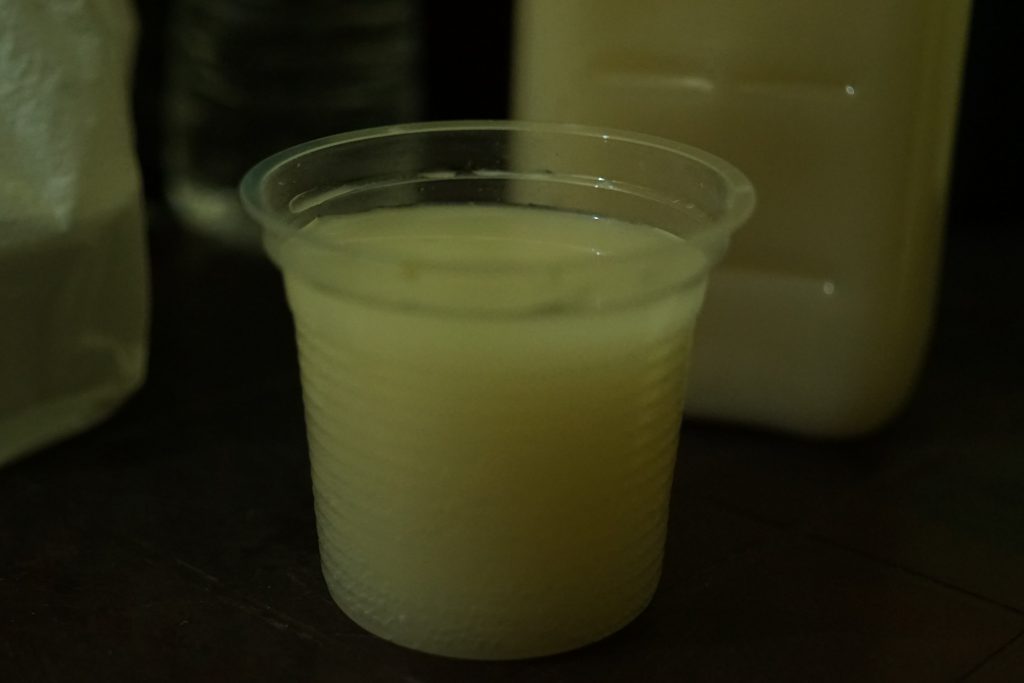That morning I was contacted by the Sumo driver. Although Sumos from Tawang to Bomdila usually left at 6:30 am, the one in which I had booked a seat was delayed due to the cold. He asked me to wait in front of Laxmi Hotel at Jang. The Sumo would anyways stop for breakfast there. Later, while crossing Jang checkpost, the military man in charge of the books checked the passengers asked me when I had entered Tawang and using what mode of transport. Even at this point he didn’t check for any documents.
One of my co-passengers was Sonam Tsering. He was headed towards Dirang for his marriage. He used to be a Lama once but gave up monastic lifestyle some six years ago. Unlike most families and most monasteries in that region who are followers of the Gelug sect of Tibetan Buddhism (the one that belongs to Dalai Lama), his family belonged to the Nyingma sect. Apparently, a Nyingma monk can perform rituals in a Gelug household but not the other way around. He kept telling me how he wanted to go back to being a lama but would have to join a different monastery—the monastery he had defected from wouldn’t take him in. There weren’t that many Nyingma Monasteries in Arunachal for him to return to. Maybe it was his pre-wedding nervousness talking.
Sela Pass lies on the border of Tawang and West Kameng district. The place has a lake and It is one of those places that most tourists visiting Tawang stop at. I had earlier considered an option of hiring a car from Jang or Dirang to visit this place. Fortunately, our Sumo driver stopped at Sela to buy a can of diesel from one of the tea shops. (These roadside tea shops stock fuel and sell them for a slightly higher price.) Sonam and I got down to look around while the other passengers stayed inside. I was happy that I did not have to plan a separate trip to visit Sela pass.
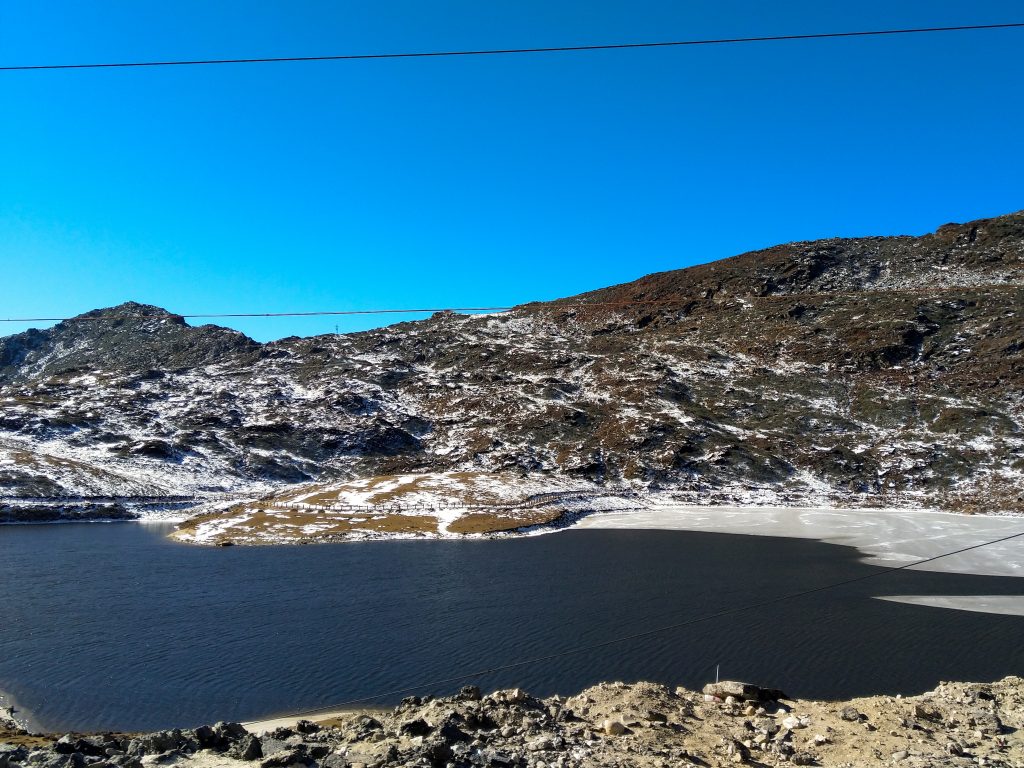
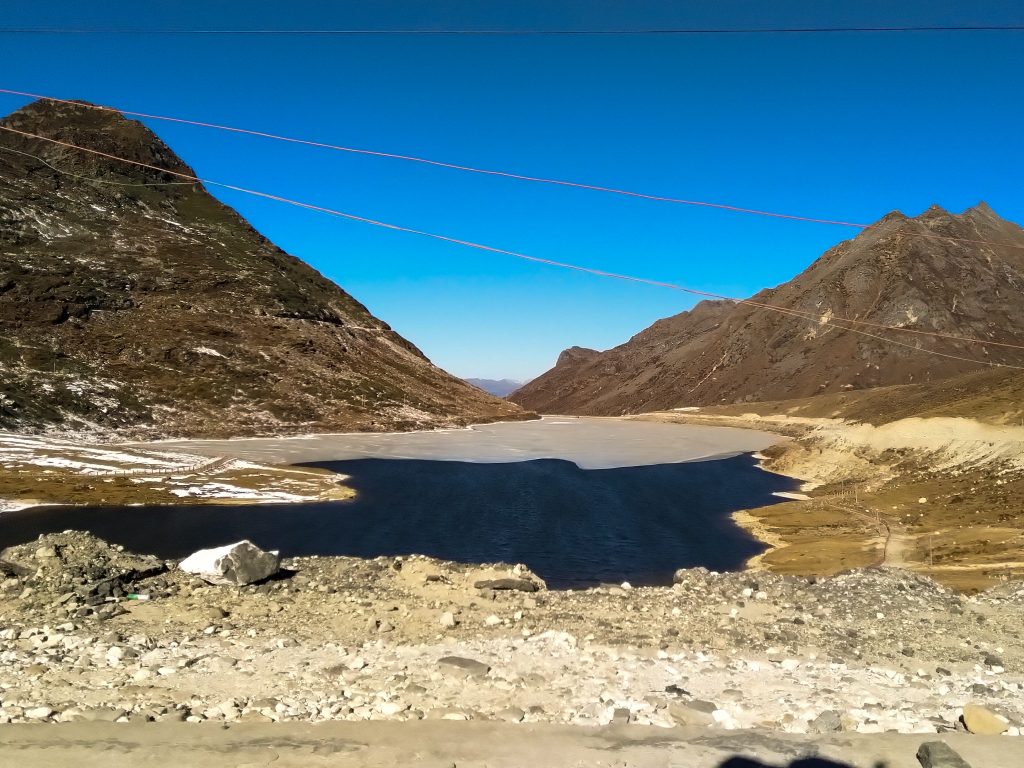
At 13,700 feet, the winds of winter are cold enough to freeze any exposed part of the body. I wasn’t wearing any gloves and my fingers became stiff to operate my camera or phone.
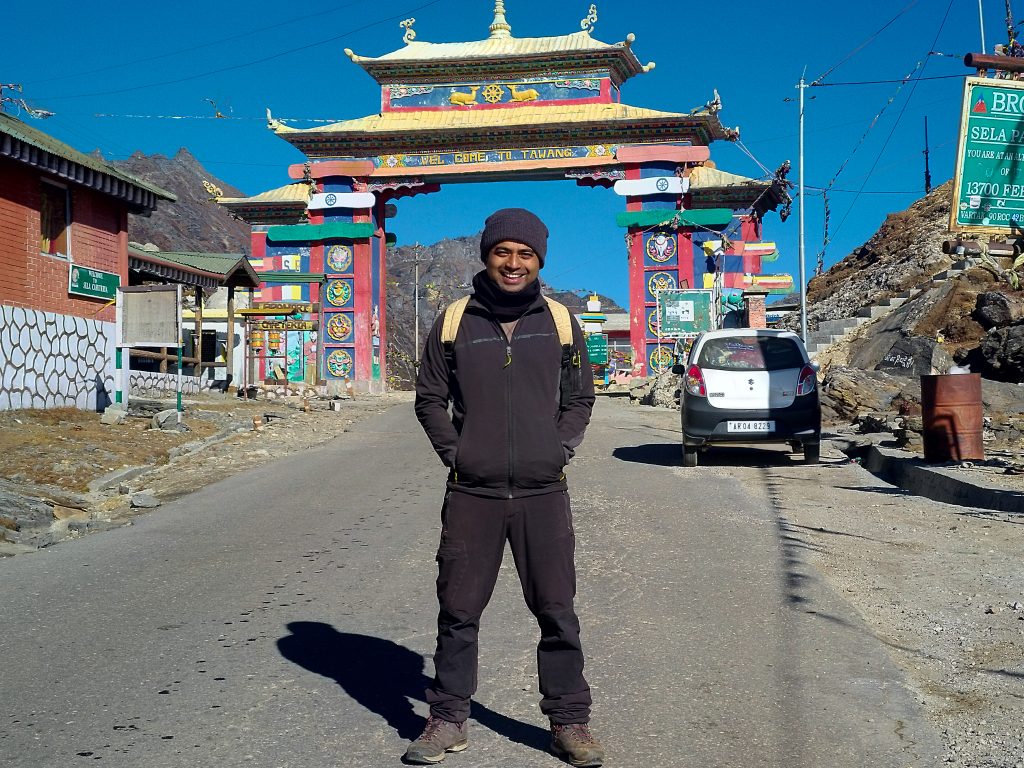
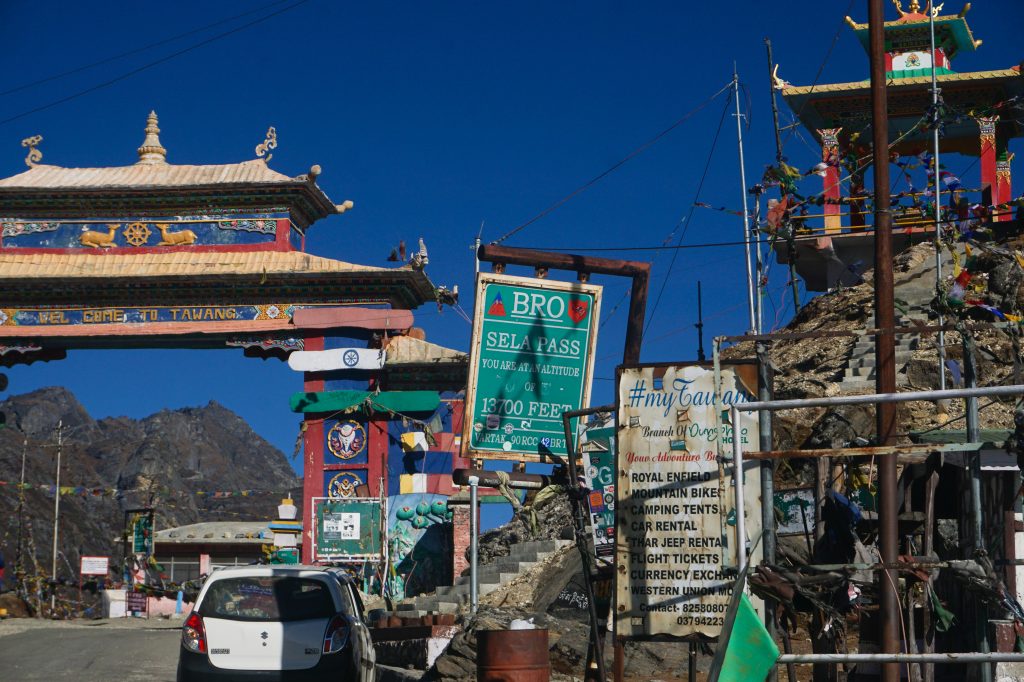
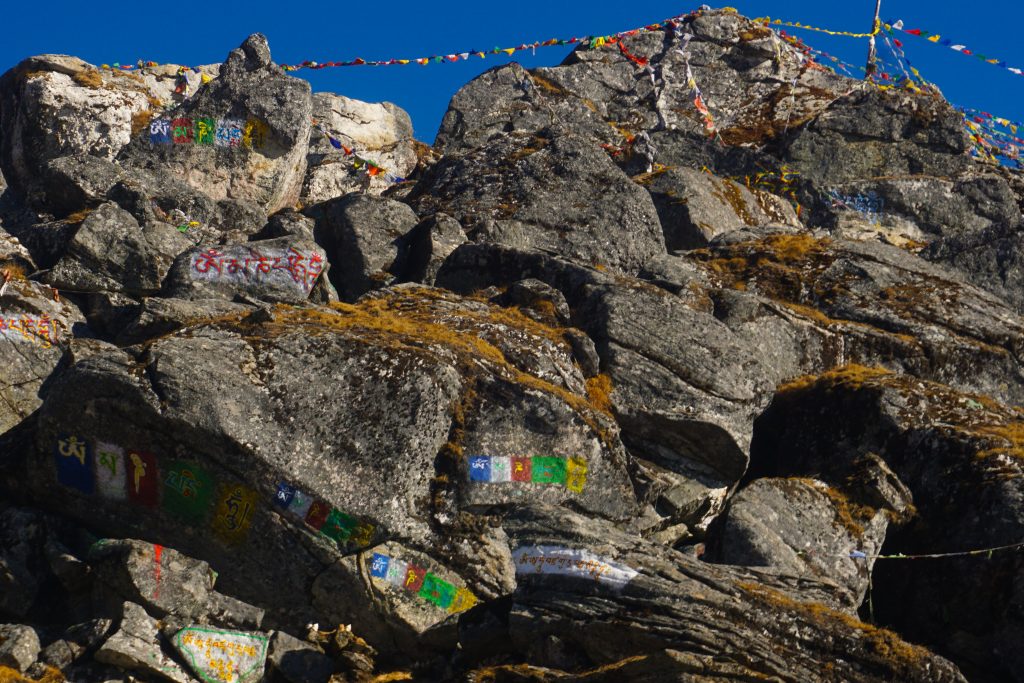
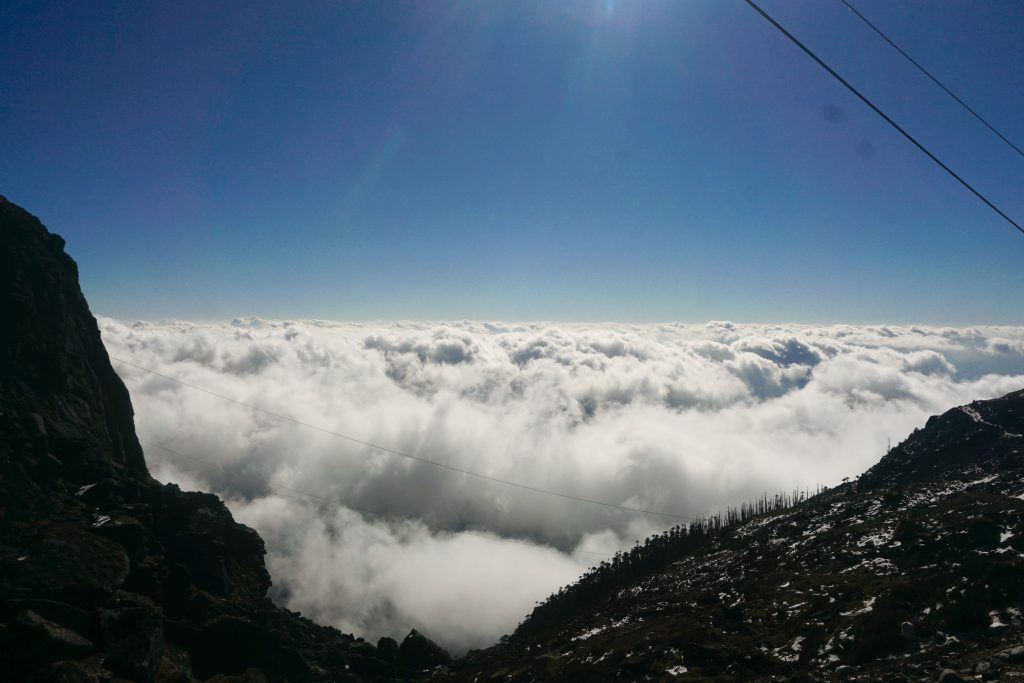
Phurpa had promised that his younger brother Dawa would come pick me up at Dirang. Unfortunately, when I got down, Dawa was had gone to his village—one I would eventually visit. He recommended me Hotel Snow Lion in Dirang market. When I reached near the reception, there wasn’t any one around. Also the place looked slightly expensive. In a backpacking trip it is important to minimise any lodging expenses—the time spent in a hotel room is pretty less. As long as the place is clean, I’m fine. Occasionally, I have compromised on cleanliness for convenience—like in Tezpur. I walked out and went to the next lodging place across the road—Hotel Womaling. It was a better decision as the owner lady was very friendly and she gave me a nice—albeit small—double bed room for INR 600.
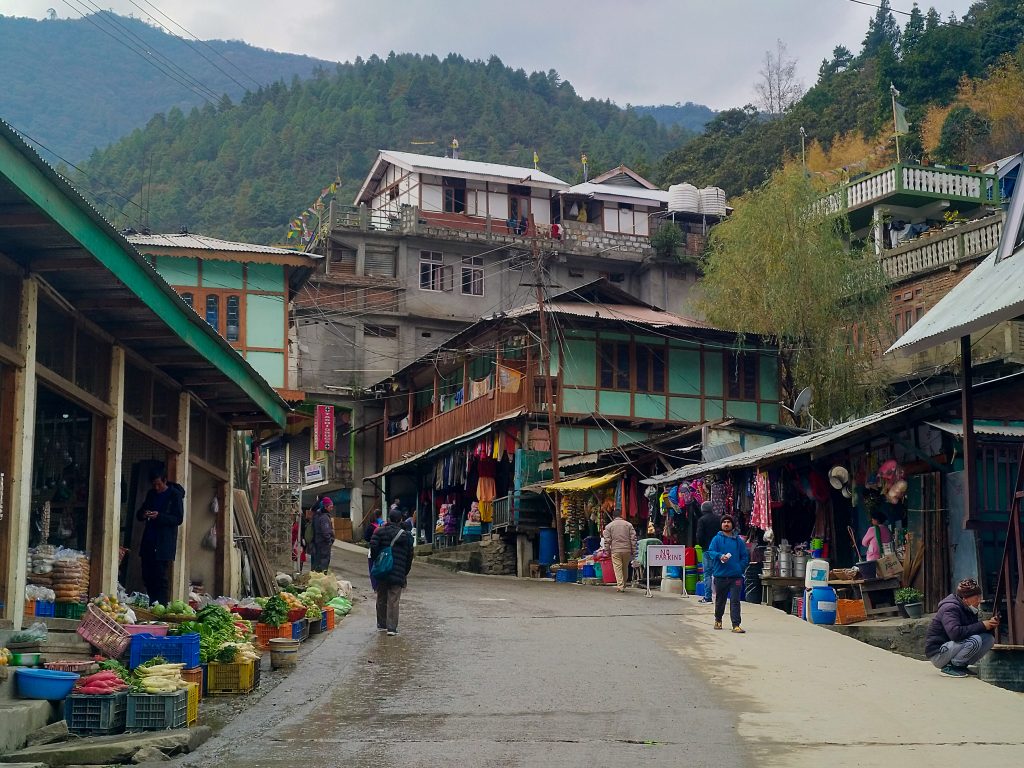
I met Dawa a couple of hours later. He was 21 years old and drove around in a beat-up Frankenstein Pulsar—both of which were about to become my companion for the next three days. We had some snacks at a shop in the market where I asked Dawa if I could find any chaang—a locally-brewed beer. Dawa mentioned that the farmers usually prepared a brew from maize called baang-chaang that had low alcohol content and distilled it further to extract an aarak with higher proof. I wanted to have some sometimes later but didn’t expect him to get some that evening itself! We had a couple of small glasses of the maize baang-chaang. It was very sweet with some amount of pungency from the fermentation process. In the coming days, while travelling as a pillion rider on Dawa’s Frankenstein Pulsar, I would come across villagers boiling maize in large vessels to prepare this baang-chaang.
